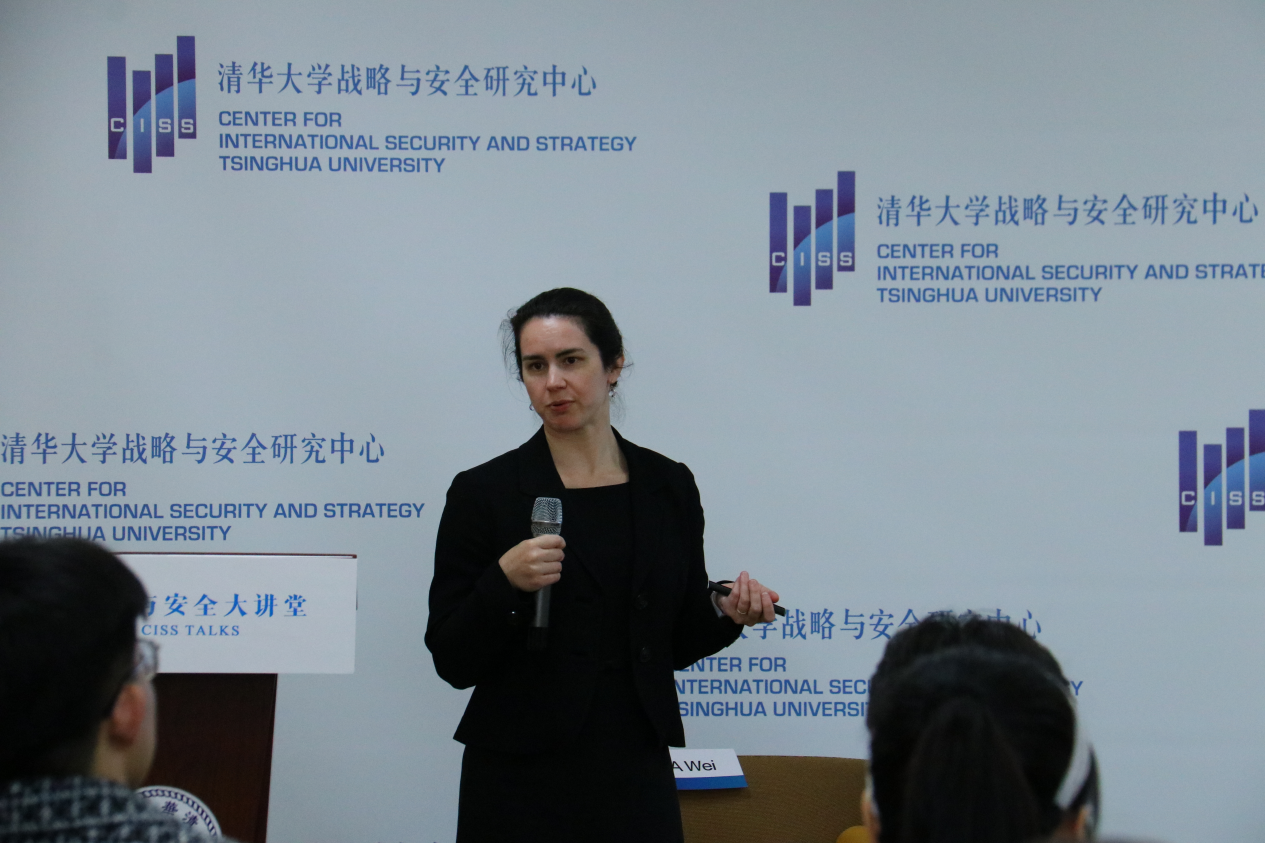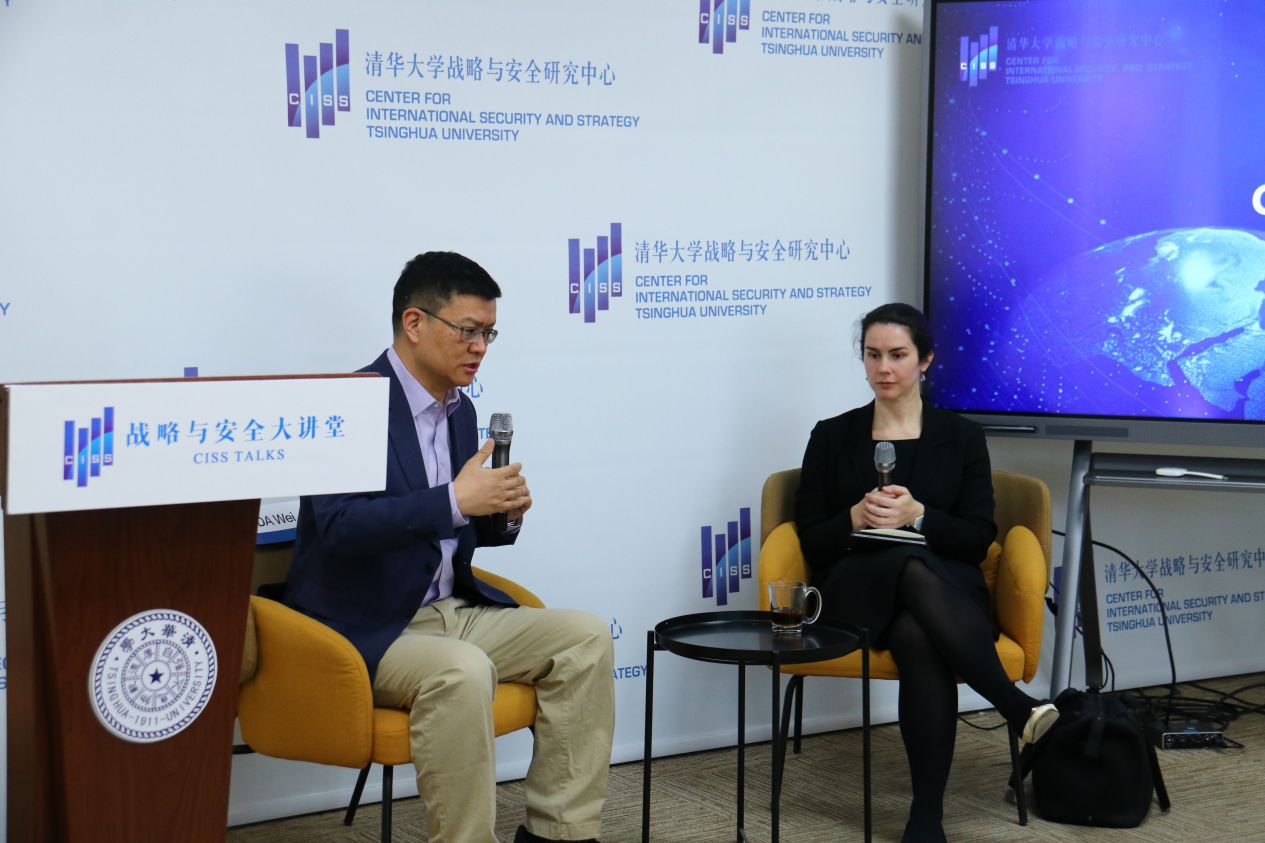On February 24, the Center for International Security and Strategy (CISS) at Tsinghua University hosted the 18th session of the Security and Strategy Talks(CISS Talks). Fiona Cunningham, Visiting Scholar at CISS and Assistant Professor of Political Science at the University of Pennsylvania, delivered a talk on "Managing Risk: Nuclear Weapons and Great Power Competition." The event was moderated by Da Wei, Director of CISS and Professor at Tsinghua University's Department of International Relations.

Analyzing the current international security landscape, Cunningham pointed out that the world is facing complex security challenges intensified by great power competition. She noted that while U.S. foreign policy became significantly more uncertain during the Trump administration, the long-term trajectory of China-U.S. strategic competition remains unchanged.
Addressing the link between great power competition and nuclear risk, Cunningham outlined four types of risks that competition could trigger. She emphasized that, based on Cold War-era U.S.-Soviet dynamics, international relations scholars recognize that while heightened competition may increase the risk of nuclear conflict, it can also create practical incentives for great powers to establish risk management mechanisms.
In her comparative analysis of China and the United States’ nuclear risk management strategies and third-party risk transmission mechanisms, Cunningham highlighted differences in nuclear force development and strategic perceptions between the two countries, while also identifying areas for cooperation. She called on the international community to closely monitor the evolving nuclear order and explore the dynamic balance between emerging technologies and international relations.

During the Q&A session, attendees actively engaged in discussions with Cunningham, raising key issues such as the future of the European security architecture and measures to ensure nuclear stability.

